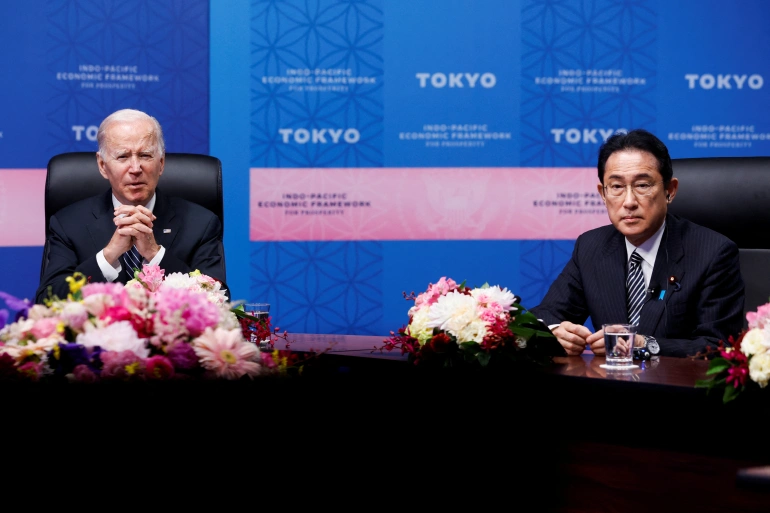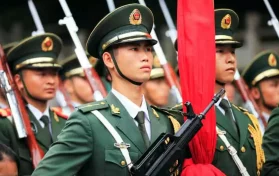
President Biden, while in South Korea, took part in the announcement of an economic initiative in which the United States and twelve countries Asia and the Pacific will “counter China’s influence in the region.” Named the Indo-Pacific Economic Framework, the initiative includes nations that the Biden Administration says is forty percent of the world’s Gross Domestic Product. The members of the IPEF have formed this framework to “deepen economic engagement among partners (which is) crucial to continued growth, peace, and prosperity.”
Members of the Indo-Pacific Economic Framework include Australia, Japan, New Zealand, India, and South Korea as well as Indonesia, the Philippines, Vietname, Singapore, Thailand, Brunei, and Malaysia. However, Taiwan was not included in the IPEF, nor was Myanmar. The members released a statement in which they claimed the desire of the framework’s members is to “level” the playing field for “economic engagement and trade.”
Seven of the countries involved in the IPEF were a part of the Trans-Pacific Partnership, from which President Donald Trump withdrew in 2017, describing the Trans-Pacific Partnership (TPP) as a “bad deal,” relating that he preferred a bilateral trade deal rather than one that is multi-lateral. Trump told a CNN reporter that if a partnership soured, it was much easier to withdraw from a bilateral trade agreement rather than one that involved multiple countries.
Biden praised the new partnership, saying, “This framework is a commitment to working with out close friends and partners in the region on challenges that matter most to ensuring economic competitiveness in the 21st century. We’re writing the new rules.” Biden added, “The key to our success will be the framework’s emphasis on high standards and inclusiveness.” President Biden related that other countries may join the IPEF at a later date if so desired.
President Joe Biden said of the new economic agreement that the deal is intended to benefit not only larger American corporations but also small businesses and ranchers as the partnership is expected to lower shipping costs and hopefully deter barriers to shipment. If this can be done, the hope is to lower consumer costs.
President Biden was questioned by reporters after his remarks regarding the Indo-Pacific Economic Framework regarding America’s position on assisting Taiwan should the country be attacked by China. Biden was asked: “Are you willing to get involved militarily to defend Taiwan if it comes to that?” Biden replied: “Yes. That’s the commitment we made.” Almost immediately, other Biden Administration officials have attempted to clarify those comments. However, China took notice immediately.
Taiwan has been a topic of discussion for some time now, particularly after China began increasing its military presence in the region. Taiwan and China have been at odds for several months now as to whether Taiwan is a sovereign country or still a part of mainland China. With China making aggressive moves militarily toward Taiwan as well as speaking out regarding the sovereignty of the country, many have expected China to invade Taiwan. Many expected this would happen if Russian President Vladmir Putin was able to successfully take over Ukraine, whom Russia invaded in February of this year.
Last week, Jake Sullivan, the National Security Advisor, told the press corps that while members of the IPEF would discuss “significant security issues in the Indo-Pacific,” discussing a potential invasion of Taiwan wasn’t on the “formal agenda” of the Quad meetings expected to take place between countries in the new framework. Sullivan related that the Biden Administration is looking to “deepen our economic partnership with Taiwan.”
China responded to President Biden’s comment almost immediately. The Chinese foreign minister, Wang Yi, commented: “(America is) forming small circles under the banner of freedom and openness to contain China; facts will provide that the so-called Indo-Pacific strategy is in essence a strategy to create division, to incite confrontation, and the undermine peace.”
The mission of the IPEF is to give trade opportunities to countries that might only get “scant” deals with China.





